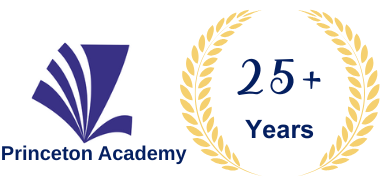📌Introduction
Sexual harassment at the workplace is a serious issue that affects employee well-being, organisational culture, and legal compliance. The PoSH Act, 2013 was enacted to provide a structured framework for the prevention, prohibition, and redressal of such incidents. This training is designed to create awareness about the legal provisions, responsibilities of employers and employees, and the critical role of the Internal Committee. It also emphasises best practices for handling complaints, conducting enquiries, and maintaining confidentiality throughout the process. By the end of the program, participants will be better equipped to foster a safe, respectful, and inclusive work environment.
🎯 Learning Objectives
- Understand the purpose, scope, and key provisions of the PoSH Act, 2013.
- Familiarise participants with the Vishakha Guidelines and relevant UN conventions.
- Clarify key definitions, including workplace (physical and virtual), aggrieved woman, and respondent.
- Identify different forms of sexual harassment and recognize unacceptable behaviors.
- Explain the constitution, powers, and responsibilities of the Internal Committee (IC).
- Equip participants to handle complaints, conduct enquiries fairly, and maintain legal compliance, including annual report filing.
PoSH Act & Legal Framework
- PoSH Act, 2013: Purpose, and objectives.
- Supreme Court Vishakha Guidelines and UN Conventions.
- Key definitions: Workplace (extended workplace, virtual scenarios), Aggrieved Woman and Respondent
- Forms of harassment: Quid Pro Quo, Hostile Work Environment
- Overview of employer and employee responsibilities under the Act.
Constitution and Role of the Internal Committee (IC)
- IC composition: Presiding officer, internal, and external members.
- Roles and responsibilities of IC members.
- Best practices for conducting IC meetings and maintaining confidentiality.
- Powers of IC: Summoning witnesses, Recording evidence, Providing recommendations.
- Do’s and Don’ts for IC members.
Handling PoSH Complaints and Conducting Enquiries
- Step-by-step complaint redressal process:
- Filing of complaints: Timeline and procedures.
- False and malicious complaints: Handling and addressing concerns.
- Conducting fair and independent investigations.
- Conciliation and settlement mechanisms.
- Principles of natural justice.
- Preparing an IC report:
- Structuring findings and recommendations.
- Timelines and documentation.
POSH Annual Report Preparation and Filing
- Legal requirements for POSH annual report under the Act:
- Tracking complaints received, resolved, and pending.
- Drafting the POSH Annual Report: Formatting guidelines and common errors to avoid.
- Submission procedure: Coordination with the district Officer or Local Committee.
- Employer’s compliance checklist:
COURSE SCHEDULE & FEES
DOWNLOAD COURSE CONTENTS
Please click the button below to download the course content. You'll need to provide your contact information to receive the document.
INCOMPANY/GROUP TRAINING REQUEST
Why Choose Our Incompany Program?
- 🎯 Tailored content specific to your business goals
- 👥 Train entire teams together, saving time and cost
- 📍 Delivered at your location or virtually
- 📅 Flexible scheduling to suit your timelines
- 📈 Increase retention and application of skills
